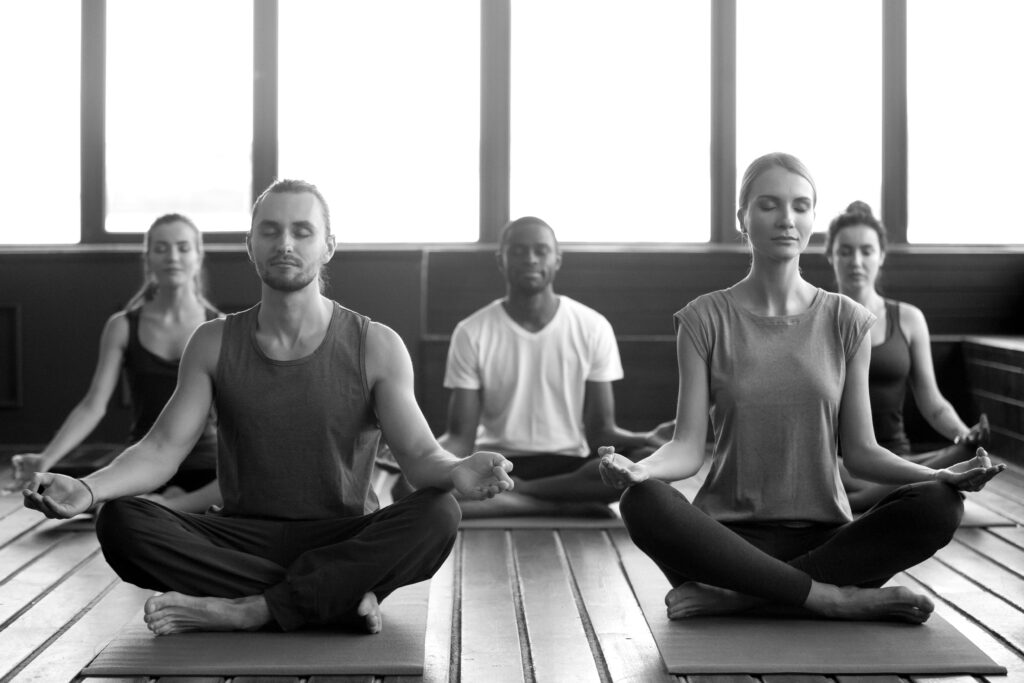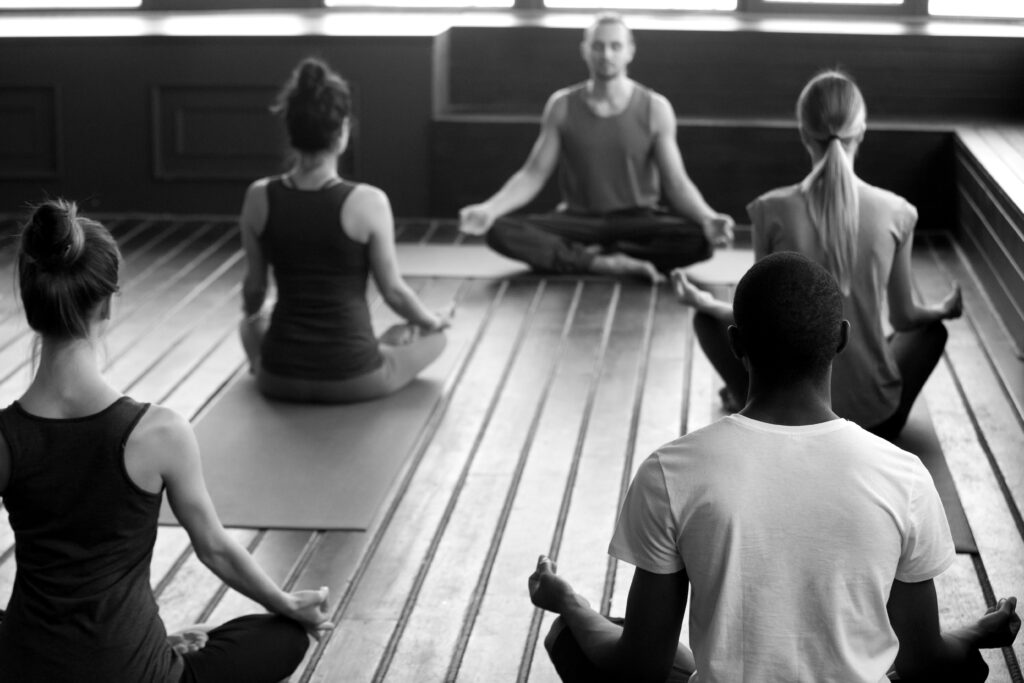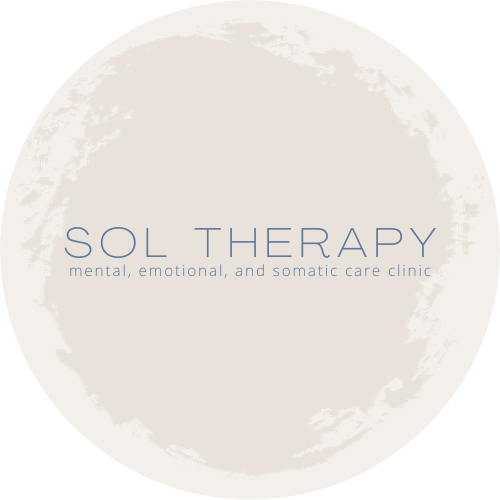Breathwork & Movement Therapy in Singapore
Breathwork to Heal
In today’s fast-paced world, our society is heavily focused on digital devices and the pursuit of perfection and escapism, leading to a disconnection with our bodies and a rise in anxiety, panic attacks, stress, and other overwhelming emotions. Despite the various coping mechanisms available, we struggle to find true fulfillment and inner peace, resulting in an epidemic of depression along with sleeping disorders.
Fortunately, there are powerful and effective approaches to address these challenges. Therapeutic Breathwork and Movement Therapy offer transformative solutions to restore the body-mind connection and promote overall well-being.
Breathing and movement, despite being often overlooked, play integral roles in our overall well-being and can greatly complement psychotherapy and clinical hypnotherapy. Intentional breathwork and movement involve specific patterns and exercises that can positively impact our internal state. Engaging in therapeutic breathwork allows us to tap into our autonomic nervous system, bringing control over emotions and stress levels through mindfulness and relaxation.
Movement is the
expression of our souls
On the other hand, Movement Therapy emphasises relearning and reconnecting with our bodies through gentle movement, mindful yoga, and postural awareness. By observing bodily sensations and emotions during movements, Movement Therapy enables the release of physical tension while facilitating emotional healing and resilience.
When combined, these practices create a holistic approach to well-being, addressing mental, emotional, and physical aspects of health. Incorporating therapeutic breathwork and movement therapy into our daily lives allows us to foster a sustainable and harmonious existence. As we prioritise self-care and cultivate a deeper understanding of ourselves, we contribute to building a more connected and compassionate environment.
Let us embrace these simple yet transformative practices and embark on a journey of self-discovery, healing, and collective well-being. By dedicating time to intentional breathwork and movement therapy. We pave the way toward a more fulfilling life for ourselves and those around us. We can create a positive ripple effect, promoting empathy and support within our home, environment, communities, and beyond.
We need to take action in our own lives because although we need a sustainable world, we also need a sustainable life, home, and body.

As shared by thought leader and breathwork coach, Max Strom, the Defence Department highly advocate for yoga and breathwork with the Navy SEALS using breathwork to help them focus and calm before they go into battle. Navy SEALS only use technologies that work, they will not use anything else, how fascinating!
By utilising our breath and mighty bodies, we can achieve a state of inner balance that keeps illnesses at bay. This happens as intentional breathing and movements calms our nervous system, turns off the fight-or-flight response, and offering us space and allowance to come home within ourselves.

Incorporating therapeutic breathwork and intentional movements into our daily routine help us self-regulate and manage mental health crises. It enables us to manage stress and emotions with greater ease, promoting harmony and balance between our mind, body, and soul.
Our individualised breathwork and movement therapy sessions offer dedicated 1:1 private attention, ensuring the best care for each person. Each session is thoughtfully tailored to support the unique needs of every individual. Clients will receive comprehensive guidance and proper tools that can be beneficial and supportive in the long run, extending well beyond the sessions when practiced regularly.
Our Treatments
Anger
Breathwork and Movement Therapy (BWMT) incorporates specific breathwork techniques and movement practices aimed at releasing built-up tension and emotions. By focusing on deep, intentional breaths and movement sequences, individuals can channel and express their anger in a controlled and constructive manner.
Anxiety Support
Breathwork and Movement Therapy (BWMT) techniques involve diaphragmatic breathing and mindful movements, regulating the nervous system. By incorporating breathwork exercises and purposeful movements, BWMT helps ground individuals and reduces anxious thoughts, fostering relaxation.
Chronic Fatigue Sydrome Support
Breathwork and Movement Therapy (BWMT) employs breathwork to increase oxygenation and vitality and incorporates gentle movements to improve circulation, reduce stiffness, and gradually enhance energy levels, supporting those with Chronic Fatigue Syndrome.
Chronic Pain Support
Breathwork and Movement Therapy (BWM) uses breath awareness and gentle movements to manage pain perception, increase flexibility, improve posture, and release muscle tension, providing relief from chronic pain.
Chronic Stress
Breathwork and Movement Therapy (BWMT) includes rhythmic breathing and mindful movement to induce deep relaxation, regulate the nervous system, reduce cortisol levels, and promote a sense of inner calm to counteract the impacts of chronic stress.
Depression Support
Breathwork and Movement Therapy (BWMT) encourages intentional breathing and dynamic movements to stimulate the release of endorphins, potentially lifting mood and alleviating depressive symptoms.
Fibromyalgia Support
Breathwork and Movement Therapy (BWMT) integrates controlled movements and breath practices to heighten body awareness, alleviate muscle tension, and enhance relaxation, potentially easing discomfort associated with fibromyalgia.
Grief and Loss Support
Breathwork and Movement Therapy (BWMT) offers practices that allow individuals to express emotions physically while focusing on breath awareness when words are not available, providing a safe outlet for emotional release and supporting the grieving process on a somatic level.
Insomnia
Breathwork and Movement Therapy’s relaxation techniques combined with movement therapy’s calming exercises are beneficial in promoting better sleep by calming the body and mind. BWMT employs breathwork techniques such as progressive muscle relaxation and calming movements to help regulate the nervous system and promote deep relaxation to prepare the body for better sleep, aiding individuals experiencing insomnia.
Irritable Bowel Syndrome
Breathwork and Movement Therapy incorporates movements targeting the abdomen to promote relaxation and reduce stress, complemented by breathwork supporting digestive health, potentially easing symptoms of IBS. Techniques used in Breathwork and Movement Therapy can reduce stress and tension in the body, potentially aiding individuals with IBS by promoting relaxation in the gut.
Panic Attack
Breathwork and Movement Therapy’s emphasis on deep, mindful breathing and movement therapy’s focus on grounding techniques can help manage the symptoms of panic attacks by guiding individuals back into the safety of their breaths and bodies. BWMT focuses on immediate relaxation and self-regulation techniques, combined with grounding movements to redirect focus and calm the mind during a panic attack.
Trauma and PTSD Support
Breathwork and Movement Therapy facilitates trauma release through controlled breath practices and slow, mindful movements, enabling individuals to process and release stored trauma in a safe and controlled manner in conjunction with other supportive modalities.
Frequently Asked Questions
What is Breathwork and Movement Therapy?
Breathwork and Movement Therapy is a holistic approach that combines intentional breathing techniques with mindful movement to promote physical, mental, and emotional well-being. It involves personalised synchronised breath patterns and gentle movements designed to enhance self-awareness, release tension, support self-regulation, and foster a sense of inner presence and balance.
How does your Breathwork and Movement Therapy differ from general breathwork programs?
In contrast to generic breathwork programs, our Breathwork and Movement Therapy, guided by an experienced and certified Breathwork and Movement Therapist, prioritizes the personalized integration of intentional breathwork with purposeful movements. Our approach goes beyond mere physical fitness, striving to synchronize the mind and body through conscious breathing and mindful motion. Recognizing the uniqueness of each individual’s body, we emphasize the need for techniques tailored to specific needs. Not all breathwork is universally suitable, and engaging in general exercises may sometimes lead to discomfort if they don’t align with the body’s requirements. Proper guidance from a certified practitioner is essential for effective and safe breathwork practices. This personalized care ensures that specific methods are chosen to avoid potential harm.
What are the benefits of Breathwork and Movement Therapy?
Breathwork and Movement Therapy offers a range of benefits, including stress reduction, process emotions, regulates the nervous systems, improved focus, increased flexibility, and enhanced emotional well-being. The intentional combination of breath and movement supports a holistic approach to health, addressing both the physical and mental aspects of well-being.
Why do some people perceive breathwork as ineffective, and how does it relate to specific physicality and mindset?
Certain breathing techniques may require specific physicality and a particular mindset, leading some individuals to perceive breathwork as ineffective. This perception may stem from the belief that it fails to calm their minds and could even contribute to increased anxiety.
How do various breathwork techniques serve different purposes, particularly in managing stress and anxiety?
Numerous breathwork techniques exist, each serving different purposes. In the context of stress and anxiety management, it’s crucial to understand that not all techniques are universally suitable. Effective stress management and anxiety relief may require time, practice, and exploration of a variety of breathwork approaches to build resilience.
Can anyone participate in Breathwork and Movement Therapy, regardless of fitness level?
Absolutely. Breathwork and Movement Therapy is accessible to individuals of all fitness levels. The practices can be adapted to suit individual needs and abilities. Whether you’re a beginner or experienced in movement practices, the therapy is designed to be inclusive and supportive of everyone.
What can I expect during a Breathwork and Movement Therapy session?
In a session, you can expect a combination of guided breathwork exercises and gentle movements. The therapist will guide you through intentional breathing patterns synchronized with purposeful motions. The aim is to cultivate awareness, release tension, and promote a harmonious connection between breath and movement.
Is Breathwork and Movement Therapy suitable for individuals seeking stress relief or relaxation?
Yes, absolutely. Breathwork and Movement Therapy is well-suited for individuals seeking stress relief, relaxation, and emotional balance. The practices are designed to encourage a mindful and embodied experience, allowing participants to connect with their breath and movement in a way that promotes a sense of calm and inner peace.
How frequently should one engage in Breathwork and Movement Therapy to experience benefits?
The frequency of sessions can be tailored to individual preferences and goals. Some individuals may discover benefits from regular sessions, while others might choose to engage in these practices as needed for stress management and overall well-being. The therapist is available to offer personalized guidance, ensuring that the approach aligns with individual needs. Additionally, we invite a minimum commitment of four weekly sessions to establish and integrate these new practices effectively.
How does Breathwork and Movement Therapy support those with mental health challenges?
Breathwork and Movement Therapy (BWMT) can be a valuable complement to clinical therapies for mental health challenges. Clients often find greater support by integrating BWMT into their treatment plans. The intentional combination of breathwork and movement can enhance self-awareness, reduce stress, and provide a holistic approach to mental well-being. Clients may experience a synergistic effect when incorporating BWMT alongside clinical therapies, fostering a more comprehensive and personalized healing journey.
In what kind of situations can one find Breathwork and Movement Therapy beneficial?
Breathwork and Movement Therapy can be beneficial in various situations, including stress management, anxiety reduction, anger management, and emotional balance. It may be helpful for individuals seeking tools to cope with life transitions, those experiencing chronic stress, or individuals looking to enhance their overall well-being. Additionally, people dealing with issues like insomnia, difficulty focusing, or general feelings of imbalance and loss may find the practices of Breathwork and Movement Therapy supportive in promoting a sense of calm and resilience.
For more information on Trauma-aware Breathwork and Movement Therapy in Singapore, please WhatsApp us at (65) 89422211 or email us at beinghuman@soltherapy.sg
